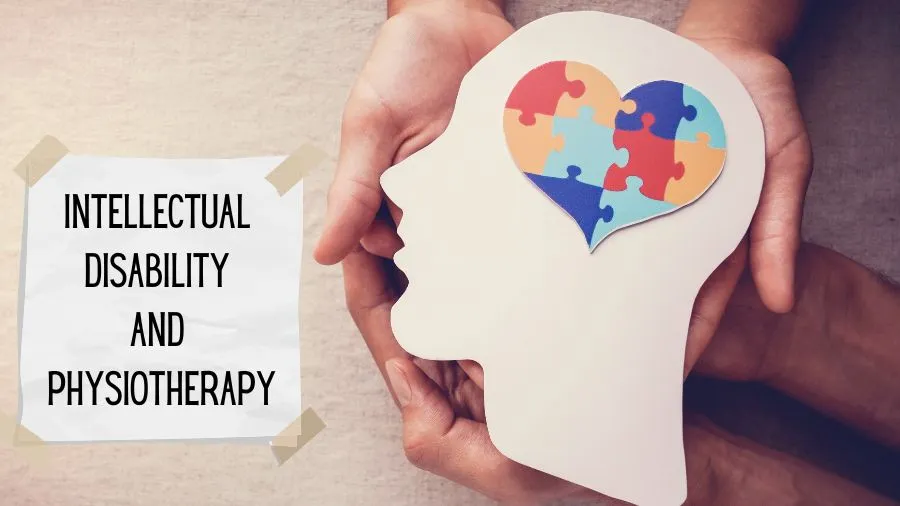Intellectual disability (ID) is a lifelong condition characterized by significant limitations in both cognitive functioning and adaptive behavior. It presents during the developmental period, typically before the age of 18. People with intellectual disabilities experience varying degrees of difficulty with conceptual skills, social interaction, and practical life tasks. While there is no cure for intellectual disability, physiotherapy can be a powerful tool to improve a person’s quality of life and independence.
Understanding Intellectual Disability
Intellectual disability is a spectrum, with individuals experiencing varying levels of impairment. A diagnosis of intellectual disability considers two main factors:
- IQ Score: An IQ score below 70 is typically considered a marker of intellectual disability. However, IQ scores alone are not the sole determining factor.
- Adaptive Behavior: This refers to a person’s ability to perform everyday activities such as self-care, communication, and social interaction. Difficulty with these skills is a key indicator of intellectual disability.
There are many causes of intellectual disability, including genetic conditions like Down syndrome, prenatal complications, and injuries sustained during birth or early childhood. While intellectual disability is a permanent condition, physiotherapy can address many of the physical challenges that can co-occur with it.
Mental Conditions and Intellectual Disability
People with intellectual disabilities are more likely to experience certain mental conditions compared to the general population. These may include anxiety, depression, and attention deficit hyperactivity disorder (ADHD). Physiotherapy can indirectly improve mental well-being by promoting physical activity and a sense of accomplishment, which can have positive impacts on mood and self-esteem.
How Physiotherapy Can Help People with Intellectual Disabilities
Physiotherapists are healthcare professionals trained to assess and address physical limitations. They work with people of all ages and abilities, and intellectual disability is a recognized area of physiotherapy expertise. Physiotherapy for intellectual disability focuses on improving a person’s:
- Gross Motor Skills: These are the large movements of the body, such as walking, running, and jumping. Physiotherapy can help improve coordination, balance, and strength, allowing for greater independence in mobility.
- Fine Motor Skills: These are the smaller movements of the hand and fingers, used for tasks like grasping, writing, and dressing. Physiotherapy can improve dexterity and coordination, increasing a person’s ability to perform daily activities.
- Range of Motion: People with intellectual disabilities may experience stiffness or tightness in their joints. Physiotherapy can help maintain or improve range of motion, reducing pain and discomfort and increasing flexibility.
- Posture and Balance: Physiotherapy can address postural problems and improve balance, which can help prevent falls and injuries.
Benefits of Physiotherapy for Intellectual Disability
The benefits of physiotherapy for people with intellectual disabilities extend far beyond physical improvements. Here are some additional ways physiotherapy can help:
- Improved Social Interaction: Physiotherapy sessions often involve play and interaction, which can foster social engagement and communication skills.
- Increased Confidence: As individuals gain physical skills and independence, their self-esteem and confidence can improve.
- Reduced Pain: Physiotherapy can address pain caused by muscle tension, stiffness, or incorrect movement patterns.
- Prevention of Secondary Conditions: Regular physical activity can help prevent obesity, cardiovascular disease, and other health problems.
Conclusion
Intellectual disability is a complex condition, but physiotherapy can be a valuable tool to improve the lives of individuals and their families. By addressing physical limitations and promoting overall well-being, physiotherapy can empower people with intellectual disabilities to reach their full potential.
Sources:
- Understanding Intellectual Disability Physio – Klint Neuro: [invalid URL removed].au/conditions/intellectual disability (2023)
- Benefits of physiotherapy for people with intellectual disability – Little Eden Society: littleeden.org.za/physiotherapy-for-people-with-intellectual-disability (2022)
- Physical therapy interventions for gross motor skills in people with an intellectual disability aged 6 years and over: a systematic review – PubMed: pubmed.ncbi.nlm.nih.gov/27259002 (2014)




